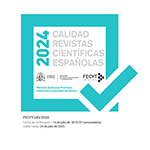Higher Education Training in social work in Albania: insights from the experiences of the T@sk project.
Abstract
In March 2020, the European Union decided to open accession negotiations with Albania, candidate country since 2014. In order to achieve this important goal in the long path of European integration, Albania had to pursue a set of requirements. Among them, the centrality of human rights affects the implementation of policies aiming at integrating minorities, as well as at granting social rights to unprivileged citizens (La Cava Nanetti 2000, Solidar 2016). In this scenario, the evolution of the professional expertise of Albanian Social workers plays a relevant role. In academic and professional terms, social work has a poor tradition in Albania, as in most of post-communist countries (Hoti 2015). In order to face the difficulties of the professional and academic evolution of social work and to facilitate a process of Europeanisation of the Social Services delivery in Albania, the European Commission has funded the project T@sk Towards Increased Awareness, Responsibility and Shared Quality in Social Work (2017-2020). The main aim of the project consists in strengthening the delivery of Social Services in Albania through the empowerment of the Higher Education system in social work. The consortium includes all public universities offering BA and MA courses in social work in Albania – University of Tirana, University of Shkoder and University of Elbasan-, and the University of Florence, the UCM of Madrid, the ISCTE of Lisbon and the Professional Order of Social workers of the Tuscany Region as Higher Education institutions of the program countries. The project operates at three levels: peer-to peer theoretical and empirical update amongst the project partners; triangulation of knowledge, transdisciplinary cooperation with the societal stakeholders and digital innovation; selection and dissemination of best practices. The project is in its final stage, and it is possible to elaborate on the main theoretical and empirical framework adopted, on the results achieved, and on the challenges to create a favorable environment for the development of social work profession in Albania. The article attempts to shed some light in the pattern of evolution of social work practices in Albania, focusing on the social and cultural background of the country, and describing the main achievements of the T@sk project.
Downloads
Article download
License
In order to support the global exchange of knowledge, the journal Cuadernos de Trabajo Social is allowing unrestricted access to its content as from its publication in this electronic edition, and as such it is an open-access journal. The originals published in this journal are the property of the Complutense University of Madrid and any reproduction thereof in full or in part must cite the source. All content is distributed under a Creative Commons Attribution 4.0 use and distribution licence (CC BY 4.0). This circumstance must be expressly stated in these terms where necessary. You can view the summary and the complete legal text of the licence.









